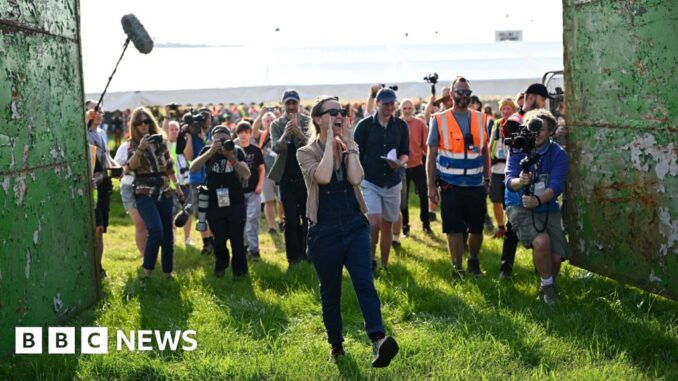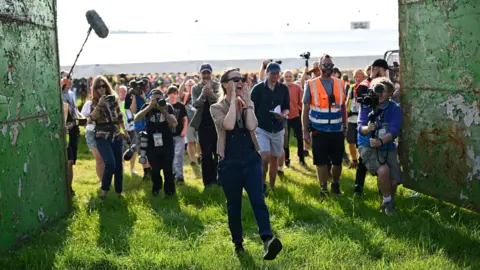
 Reuters
ReutersGlastonbury Festival has reported that profits more than doubled last year, as it faces criticism for being too “corporate”.
The festival, based in Pilton, Somerset, brought in £5.9m in pre-tax profits for the year to March 2024 – up from £2.9m the year before.
During the same period, the event also donated £5.2m to charitable organisations including Oxfam, Greenpeace and WaterAid.
A spokesperson for the festival said “successful, dry Glastonburys in both 2023 and 2024” had helped to “rebuild the event’s vital financial reserves”.
The spokesperson said it also allowed them to “continue to support good causes and charities”.
Like many festivals, Glastonbury saw record losses during the pandemic, with the event called off in 2020 and 2021, “costing the festival millions”, said the spokesperson.
 PA Media
PA MediaMusician Neil Young recently criticised Glastonbury for being “under corporate control” of the BBC.
He told fans he and his band the Chrome Hearts “were looking forward to playing Glastonbury”, but had now decided not to perform due to the BBC’s involvement and requests being made.
While the BBC is the exclusive broadcast partner of the festival and has worked closely with it since 1997, Glastonbury also has partnerships with companies including the Co-op and Vodafone.
Companies House records show Glastonbury’s profits remain relatively small in comparison with its overall revenue, which was £68.4m, a 20% rise on the year before.
In 2023, a report commissioned to gauge the event’s economic impact found it generated about £168m for UK-based businesses.

Co-creator Michael Eavis has passed the day-to-day running of the festival to his daughter Emily in recent years, but officially transferred his financial shares in the company to her in October 2024, the accounts show.
“This latest change is simply another part of that process,” said the festival’s spokesperson.
The company also spent £3.7m on buying land in June 2024.



Be the first to comment